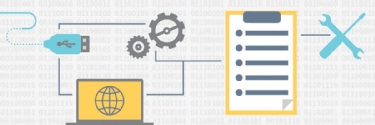IT management
Learn about the core elements of IT management, including operations, tech support and personal computing, as well as terms related to IT careers, certifications and project management.

Certifications
This glossary contains definitions related to IT Certifications.
-
What is RHIA (Registered Health Information Administrator)?
A registered health information administrator (RHIA) is a certified professional who oversees the creation and use of electronic health records (EHRs).
-
What is AWS Certified Solutions Architect - Associate?
AWS Certified Solutions Architect - Associate is a certification for IT professionals who use Amazon Web Services to design and implement cloud solutions.
-
What is Cisco Certified Internetwork Expert (CCIE) certification?
Cisco Certified Internetwork Expert (CCIE) certification is a series of technical certifications for senior networking professionals who design, build, implement, maintain and troubleshoot complex enterprise networking infrastructures.
IT career paths
-
What is a data scientist? What do they do?
A data scientist is an analytics professional who collects, analyzes, and interprets data to transform it into actionable insights that can facilitate decision-making.
-
What is succession planning?
Succession planning is the strategic process of identifying and developing internal candidates to fill key organizational roles to ensure business continuity and the availability of effective leadership in the face of role transitions, departures or unforeseen events.
-
What is a registered health information technician (RHIT)?
A registered health information technician (RHIT) is a certified professional who creates and verifies electronic health records.
IT Operations
Terms related to the processes and services implemented and managed by an organization’s information technology (IT) department. Topics covered include systems management, configuration management, API management and DevOps, as well as real-time performance monitoring and management.
-
What is a configuration management database?
A configuration management database (CMDB) is a file -- usually in the form of a standardized database -- that contains all relevant information about the hardware and software components used in an organization's IT services and the relationships among those components.
-
What is enterprise architecture (EA)?
An enterprise architecture (EA) is a conceptual blueprint that defines an organization's structure and operation.
-
What is a standard operating procedure (SOP)?
A standard operating procedure is a set of step-by-step instructions for performing a routine activity.
Personal computing
Terms related to personal computers, including definitions about computers sold as consumer products and words and phrases about laptops, tablets and smartphones.
-
What is user-generated content?
User-generated content (UGC) is published information that an unpaid contributor provides to a website.
-
What is Microsoft OneDrive and how do you use it?
OneDrive is Microsoft's online cloud storage service.
-
What is an IP address (Internet Protocol address)?
An Internet Protocol (IP) address is a unique numerical identifier for every device or network that connects to the internet.
Project management
Terms related to project management, including definitions about project management methodologies and tools.
-
What is a distributor agreement (distribution agreement)?
A distributor agreement -- also referred to as a distribution agreement -- is a legally binding contract between a vendor or manufacturer and a distributor.
-
What is Hyperledger?
Hyperledger is a collection of open source projects created to support the development of blockchain-based distributed ledgers.
-
What is a channel strategy?
A channel strategy is a vendor's plan for delivering a product or service to end customers through direct or indirect sales channels.
Technical support
Terms related to computer fundamentals, including computer hardware definitions and words and phrases about software, operating systems, peripherals and troubleshooting.
-
What is customer data integration (CDI)?
Customer data integration (CDI) is the process of defining, consolidating and managing customer information across an organization's business units and systems to achieve a "single version of the truth" for customer data.
-
What is business process outsourcing (BPO)?
Business process outsourcing (BPO) is a business practice in which an organization contracts with an external service provider to perform an essential business function or task.
-
What is a backup storage device?
A backup storage device is a hardware component that stores duplicate copies of data.